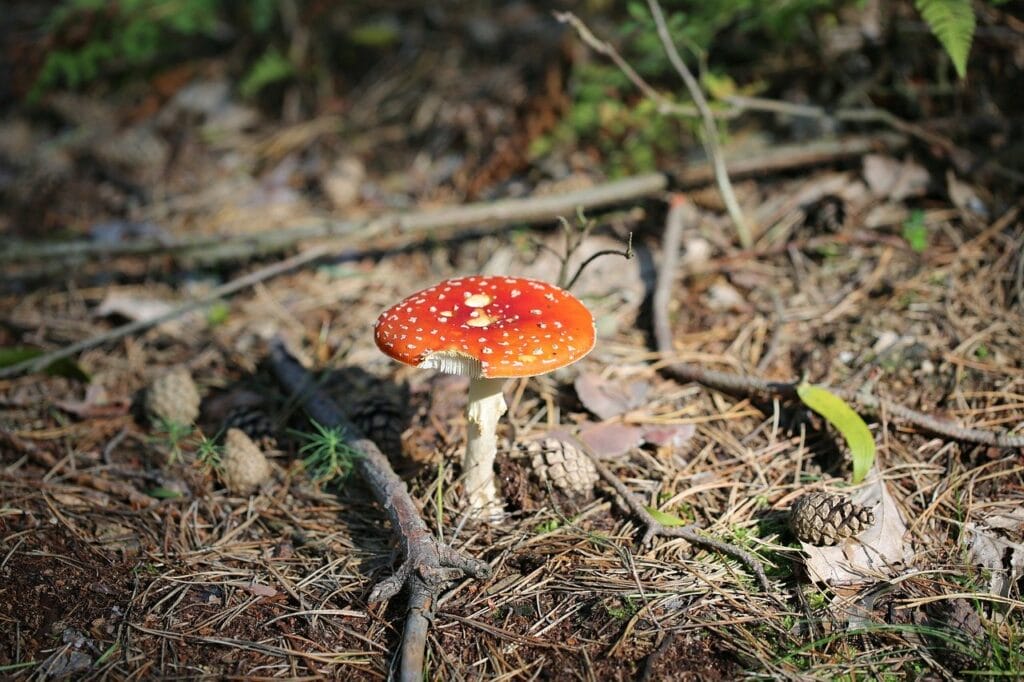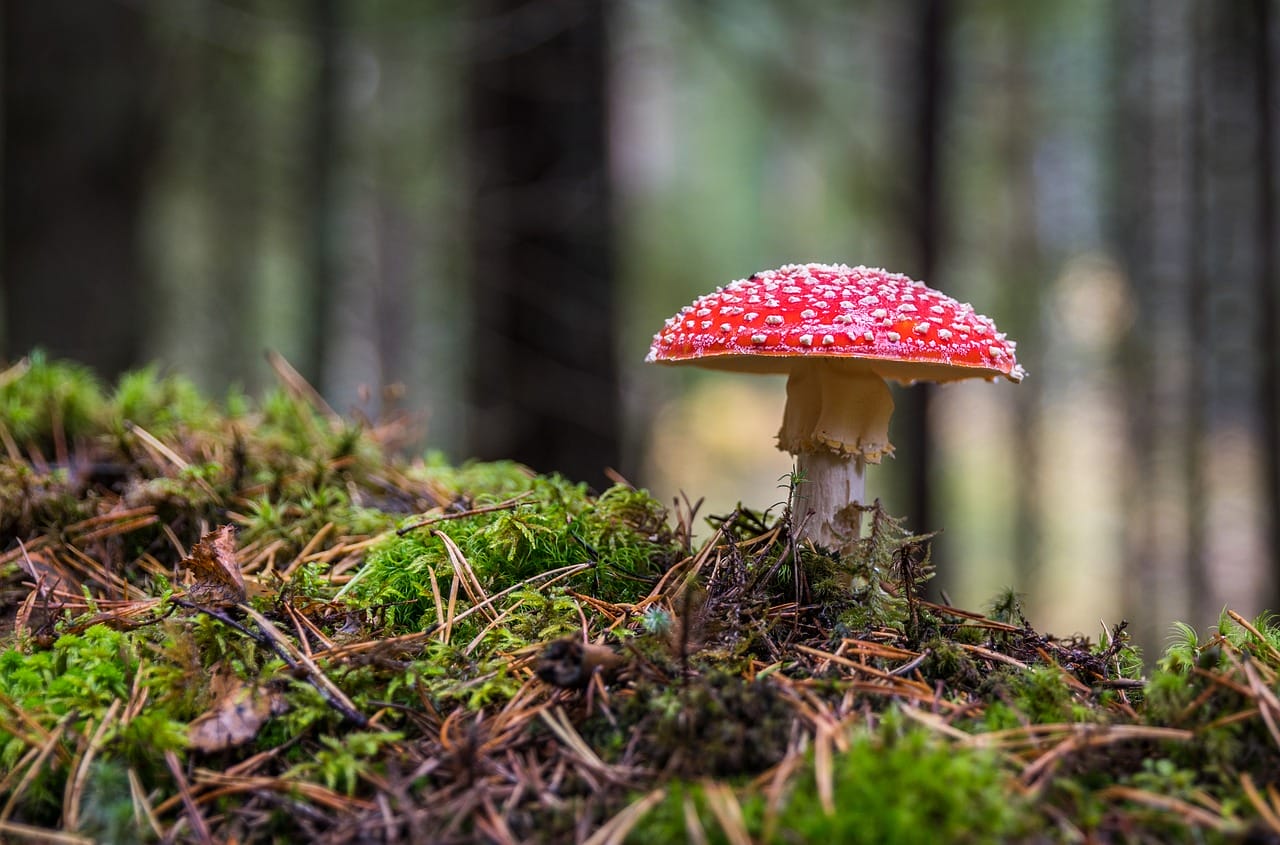Over millennia, mankind has identified and intentionally utilized the psychedelic aspects of certain plants and fungi.
Among these, fungi, specifically magic mushrooms, are acknowledged as the primary natural provider of psychedelic substances.
The psychedelic compound psilocybin, sourced from mushrooms, occupies a significant role in history, being utilized in spiritual ceremonies and healing practices.
Many scientists are dedicating their time and resources to explore the potential health benefits of shrooms online. Current studies have shed light on the effects of psilocybin mushrooms. These discoveries provide hope for many people, underscoring the need to discuss their integration into the Canadian healthcare system.
Key Points:
- Magic mushrooms, rich in the psychoactive substance psilocybin, offer several benefits for addressing mental health disorders in Canada.
- Psilocybin is safer and presents a lower addiction and toxicity risk compared to opioids.
- Psilocybin demonstrates long-lasting effectiveness in treating depression, with effects that can persist for up to a year.

Understanding Psilocybin
Psilocybin is an indole-alkylamine (tryptamine) extracted from magic mushrooms and bears structural resemblance to lysergic acid diethylamide (LSD). Its effects encompass hallucinogenic and euphoric experiences, likely due to its interaction with serotonin (5-HT) receptors in the central nervous system.
Considering its interaction with serotonin receptors, high-quality magic mushrooms show a unique propensity to aid in managing mental health conditions.
Canada’s Mental Health and Opioid Crisis
Common Mental Health Disorders in Canada & Treatment Resistance
| 2012 | 2022 | |
| Major Depressive Episodes | 4.7% | 7.6% |
| Generalized anxiety disorder | 2.6% | 5.2% |
| Social phobia | 3.0% | 7.1% |
| Alcohol use disorder | 3.2% | 2.2% |
Over one-third (36.6%) of people struggling with mood, anxiety, or substance use disorders reported that their healthcare and mental health needs were not met or insufficiently met.
Insight into the attitudes towards seeking treatment among patients with depression comes from a research article published in the Canadian Journal of Psychiatry. The research examined 1282 patient records from 135 doctors and identified 263 patients with treatment-resistant depression (TRD). This finding suggests a prevalence rate of 21.7% across Canada.
Opioid Crisis
Chronic pain is a condition that affects approximately 8 million Canadians, or one in five individuals. If not properly managed, such pain can negatively affect various areas of a person’s life.
Healthcare providers sometimes recommend the use of opioid medications to manage pain. While opioids can provide benefits like pain relief and improved functionality, they also carry potential risks.
Between January 2016 and March 2022, at least 30,843 deaths related to opioid toxicity were reported in Canada. The majority of these tragic events occurred in early 2021, with a staggering 5,368 cases reported. It’s important to note that over 88% of these incidents took place in the provinces of British Columbia, Ontario, and Alberta.
For Major Depressive Episodes
A study featured in the Journal of Psychopharmacology recruited 27 individuals with a long history of depression. The majority had been experiencing depressive symptoms for roughly two years prior to the study. 88% of these participants had previously received traditional antidepressant treatment, and 58% were currently using such medications during their depressive episodes.
The study recorded significant reductions in depression following psilocybin treatment for both groups. Additionally, they observed that the severity of depression remained consistently low at follow-up points one, three, six, and 12 months after treatment.
For General Anxiety and Social Phobia
A case study published in the Croatian Medical Journal in October 2021 explored HTML:
The narrative revolves around a
A 16-year-old solitary boy sought help from a mental health clinic due to his tendency to self-isolate, severe anxiety, and deteriorating academic performance. These issues were exacerbated by a learning disability and a lack of motivation for his studies, making group therapy overwhelming and ineffective for him.
After undergoing three psilocybin sessions over 18 months, significant positive changes were noted. His anxiety diminished, and he communicated better with peers and teachers. He became more expressive, actively engaged in group therapy, and experienced improved interpersonal relationships.
In the Context of Alcohol Use Disorder
A recent clinical trial published in JAMA Psychiatry on August 24 highlighted the potential of combining psilocybin and psychotherapy for treating alcohol use disorder. The study tracked the progress of 93 patients with the condition for a period of 32 weeks.
Of those who underwent psilocybin-assisted therapy (48 individuals), there was an impressive 83% reduction in alcohol consumption within eight months of their first dose. This was compared to a 51% decrease in the placebo group. Almost half of the patients treated with psilocybin stopped drinking entirely.
Addressing the Opioid Crisis
Elena Argento, a postdoctoral fellow at the University of British Columbia and BC Centre on Substance Use, is conducting research on the medicinal applications of psychedelics.
Argento explains that psilocybin operates on two fronts to minimize addiction risks: it impacts both neurobiology and psychology. She underscores the transformative experiences psychedelics can create, characterized by a profound sense of awe and self-transcendence. These experiences often lead individuals to discover new meanings and purposes in life, potentially sparking changes in behavior, especially in relation to addiction.
A recent long-term study led by Argento and the BC Centre on Substance Use revealed a significant decrease in the likelihood of continued daily illicit opioid use among those who had recently or within the past six months used psychedelics.
Argento’s 2018 study also indicated that psychedelic use could act as a protective factor against the link between prescription opioid use and suicide risk.
Another study found associations between the use of psilocybin and a reduced risk of opioid use disorder. This prior research showed a 40% lower risk of opioid misuse and a 27% decreased risk related to opioid dependence over the
The previous year has seen a rise in psychedelic use.
Psilocybin Must Be Considered Integral to Canada’s Treatment Approach by Health Canada and Other Regulatory Bodies
Even though Psilocybin is recognized for its possible beneficial effects on Canadian mental health, it is not easily accessible. Health Canada allows medical professionals to prescribe this therapy through the Special Access Program. But the stringent regulations of the program present a significant challenge for many practitioners and patients.
Introducing psilocybin, a component of mushrooms, for therapeutic purposes could revolutionize mental health care in Canada, as it holds the promise of transformative benefits. Psilocybin therapy, an alternative to traditional, often less effective treatments such as pharmaceuticals or opioid replacement therapy, could potentially have deep and lasting impacts.
Studies indicate that psilocybin therapy could provide long-term benefits, potentially saving patients substantial costs on ineffective treatments. Additionally, research suggests that psilocybin is relatively safe, with low toxicity, minimal risk of misuse, and infrequent instances of overdose.
How to Buy Psilocybin Online?
Canadians who find access to psilocybin therapy difficult have the option to buy magic mushrooms online to alleviate their current conditions. They can choose from a range of magic mushroom products, from high-dose shrooms to microdose magic mushrooms.
High-dose shrooms encompass psychedelic mushrooms available in various forms, such as dried magic mushrooms, edibles, or beverages, which are ingested for their hallucinogenic and therapeutic effects.
Magic mushrooms for microdosing comprise products that contain small amounts of magic mushrooms. These products are offered in forms like capsules, mushroom edibles, or mushroom tea. Buying shrooms online offers an alternative way to subtly experience the advantages of these mushrooms. Psychedelic Canada exclusively provides high-quality magic mushrooms online.
Is Psilocybin a Fit for Canadian Healthcare?
Psilocybin, often misunderstood due to its recreational use, has a safer profile than opioids and other drugs commonly prescribed in healthcare settings.
There is a growing body of evidence suggesting its potential benefits, similar to those of marijuana, in treating a variety of mental health issues. dimensions of reality.
Magic mushrooms have been leveraged within the wellness industry to facilitate mental health therapies and encourage individual development.
What could be the potential risks and side effects of consuming magic mushrooms?
The intake of magic mushrooms can lead to a range of outcomes, both positive and negative. These could encompass hallucinations, altered perceptions, and psychological modifications. On the flip side, they could potentially lead to nausea, dizziness, and in exceptional cases, psychological distress. It is crucial to use magic mushrooms cautiously and responsibly, being fully aware of the possible risks. It is always advisable to consult a healthcare professional before initiating any regimen involving magic mushrooms.
Is it safe to purchase magic mushrooms on the internet?
Online procurement of magic mushrooms can be safe, given that you patronize a credible source. It is vital to perform an exhaustive investigation about the product, brand, and the online dispensary before confirming a purchase. Customer reviews and ratings can serve as beneficial indicators of the product’s quality and the service’s reliability. Always opt for dispensaries that prioritize customer safety and satisfaction and provide secure payment methods.
Is it possible to cultivate my own magic mushrooms?
Yes, home cultivation of magic mushrooms is feasible and can be a gratifying experience. However, it necessitates specific conditions and a comprehensive understanding of the cultivation process. There are numerous kits and guides available online to aid you in your cultivation endeavor. However, bear in mind that the legality of magic mushroom cultivation differs depending on the location, so ensure adherence to your local laws and regulations.
Within the wellness domain, some individuals opt for a more balanced usage, consuming small quantities of mushrooms to harness their benefits without inducing hallucinations.
You Might Find These Articles Interesting:





